Resources
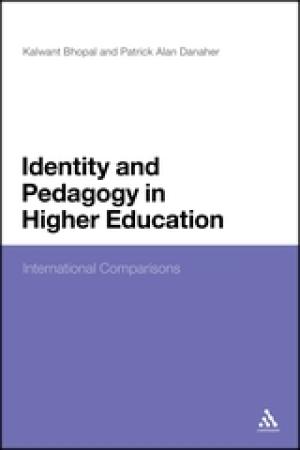
Kalwant Bhopal and Patrick Danaher examine 'race', identity and gender within education and explore the difficulties of relating these concepts to the experience of students in higher education. In drawing together the experience of local and international students in the UK and in Australia, they examine the ways identities are understood and conceptualized within higher education in local contexts and on a global level. They consider the complexity of 'race', gender and identity in relation to education within the context that education continues to be dominated by predominantly white, middle class values and perspectives. Identity and Pedagogy in Higher Education examines the extent to which education as a vehicle for change in the light of the controversial debates surrounding race and gender inequalities. (From the Publisher)
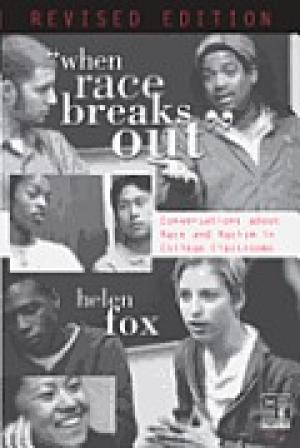
When Race Breaks Out is a guide for instructors who want to promote more honest and informed conversations about race and racism. Based on the author's personal practice and interviews with students and faculty from a variety of disciplines, this book combines personal memoirs, advice, teaching ideas, and lively stories from college classrooms. A unique ¬´ insider's guide to the main ideas, definitions, and opinions about race helps instructors answer students' questions and anticipate their reactions, both to the material and to each other. An annotated bibliography of over 150 articles, books, and videos with recommendations for classroom use is also included. (From the Publisher)
This study replicated and extended Wanzer et al.'s (2006) typology of appropriate and inappropriate teacher humor and advanced explanations for student interpretations of teacher humor. Three explanations were advanced for why teacher humor may be perceived as inappropriate by students. First, disposition and incongruity-resolution theories were used to explain the cognitive and affective elements of teacher humor, second, student communication predispositions were advanced as an explanation, and the third explanation was teacher communication predispositions. ..PAT.-Unpublished Manuscript
Abstract In several enigmatic passages, Paulo Freire describes the pedagogy of the oppressed as a ‘pedagogy of laughter’.The inclusion of laughter alongside problem-posing dialogue might strike some as ambiguous, considering that the global exploitation of the poor is no laughing matter. And yet, laughter seems to be an important aspect of the pedagogy of the oppressed. In this paper, I examine the role of laughter in Freire’s critical pedagogy through a series of questions: Are all forms of laughter equally emancipatory? Certainly a revolutionary pedagogue can laugh, but should he or she, and what are the political (if not revolutionary) implications of this laughter? In order to shed new light on Freire’s fleeting yet provocative comments, I turn to Jacques Rancière for his emphasis on the aesthetics of politics, and PauloVirno who connects joke telling with critical theory. Overall, I argue that we need to take Freire’s gesture toward a pedagogy of laughter seriously in order to understand the aesthetics of critical pedagogy and the fundamental need for a redistribution of the sensible that underlies educational relations between masters and pupils.
Several studies have examined the pedagogical implications and cautions concerning the use of humor in teaching. Humor has been associated with a host of positive physiological and psychological effects. Researchers have identified that educators who use humor in their instruction are more positively rated by their peers and their students; others have suggested that humor may enhance learning. Although much of this evidence has been anecdotal, the present study assesses the impact of curriculum-specific humor on retention and recall, as well as student evaluations of the course and the instructor. The appropriate use of humor in a classroom setting is discussed and cautions against tendentious humor are addressed.
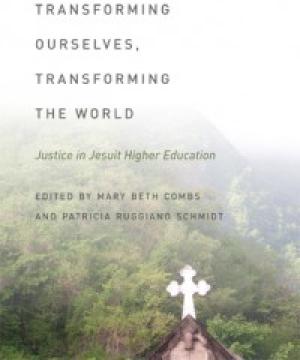
Click Here for Book Review Abstract: Transforming Ourselves, Transforming the World is an insightful collection that articulates how Jesuit colleges and universities create an educational community energized to transform the lives of its students, faculty, and administrators and to equip them to transform a broken world. The essays are rooted in Pedro Arrupe’s ideal of forming men and women for others and inspired by Peter-Hans Kolvenbach’s October 2000 address at Santa Clara in which he identified three areas where the promotion of justice may be manifested in our institutions: formation and learning, research and teaching, and our way of proceeding. Using the three areas laid out in Fr. Kolvenbach’s address as its organizing structure, this stimulating volume addresses the following challenges: How do we promote student life experiences and service? How does interdisciplinary collaborative research promote teaching and reflection? How do our institutions exemplify justice in their daily practices? Introductory pieces by internationally acclaimed authors such as Rev. Dean Brackley, S.J.; David J. O’Brien; Lisa Sowle Cahill; and Rev. Stephen A. Privett, S.J., pave the way for a range of smart and highly creative essays that illustrate and honor the scholarship, teaching, and service that have developed out of a commitment to the ideals of Jesuit higher education. The topics covered span disciplines and fields from the arts to engineering, from nursing to political science and law. The essays offer numerous examples of engaged pedagogy, which as Rev. Brackley points out fits squarely with Jesuit pedagogy: insertion programs, community-based learning, study abroad, internships, clinical placements, and other forms of interacting with the poor and with cultures other than our own. This book not only illustrates the dynamic growth of Jesuit education but critically identifies key challenges for educators, such as: How can we better address issues of race in our teaching and learning? Are we educating in nonviolence? How can we make the college or university “greener”? How can we evoke a desire for the faith that does justice? Transforming Ourselves, Transforming the World is an indispensable volume that has the potential to act as an academic facilitator for the promotion of justice within not only Jesuit schools but all schools of higher education. (From the Publisher)
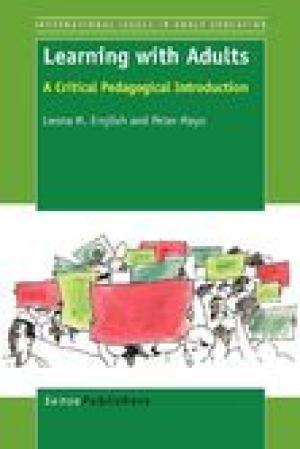
This book is written at a time when our own field of adult education is under assault from a variety of capitalist and neoconservative forces pressuring us... to turn away from the causes of criticality, lifelong learning, and education for freedom. Rather than succumb to these pressures, we have hope that our long term goals of education for life and living can and will be accomplished alongside professional and vocational education. This book offers new insight into what is a very dark moment of our human civilization. From the preface by Dr Carlos Alberto Torres, Professor, GSEIS, Director, Paulo Freire Institute, University of California at Los Angeles The book offers decidedly critical and international perspectives on various aspects of adult education, especially on state, citizenship and neoliberal policies. Critical in both content and method, it is at the same time the part of the collective work needed to advance the Belém call to action by furthering awareness and capacity in the field of adult education. Dr Katarina Popovic, Professor,Universität Duisburg-Essen, University of Belgrade & DBB International, In the midst of diminishing resources and growing inequalities, English and Mayo provide an incisive and much needed critique of adult education in ways that highlight not only its historical and philosophical roots but also its major significance to the practice of democracy. In a direct challenge to the neoliberal accountability craze, Learning with Adults offers a rigorous political reading of the field—one that systematically challenges oppressive educational policies and practices, while affirming an emancipatory vision of civic engagement. Truly an informative treatise that sheds new light on the education of adults. Dr Antonia Darder Professor & Leavey Presidential Endowed Chair in Education Loyola Marymount University Los Angeles Leona English and Peter Mayo challenge hegemonic assumptions and ideas, while offering a constructive alternative based on the principle of working with learners and not just for them. Their analysis is accessible enough for newcomers to the field, while the authors’ wide-ranging coverage and radical approach provide refreshing and challenging messages for the most experienced adult educator. Up-to-date, genuinely international and passionately committed, Learning with Adults is a great book. (From the Publisher)
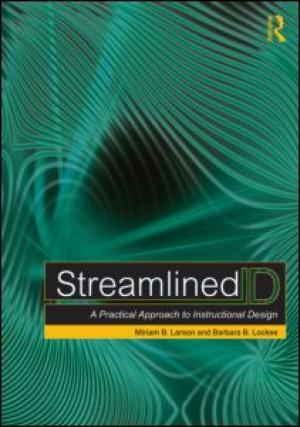
Streamlined ID: A Practical Guide to Instructional Design presents a focused and generalizable approach to instructional design and development – one that addresses the needs of ID novices, as well as practitioners in a variety of career environments. Emphasizing the essentials and "big ideas" of ID, Streamlined ID presents a new perspective – one that aims to produce instruction that is sustainable, optimized, appropriately redundant, and targeted at continuous improvement. The book features an enhanced version of the classic ADDIE model (Analysis, Design, Development, Implementation, and Evaluation) that emphasizes the iterative nature of design and the role of evaluation throughout the design/development process. It clearly lays out a systematic approach that emphasizes the use of research-based theories, while acknowledging the need to customize the process to address a variety of pedagogical approaches: Instructivist, Constructivist, and Connectivist. The book opens with an overview of the basics of ID and each subsequent chapter describes major activities in the ID process with step-by-step instructions and tips for streamlining the process. Numerous job aids serve to maximize the efficiency and effectiveness of your design efforts. Each chapter highlights key concepts and provides additional exercises and assignments based on the work of Benjamin Bloom. Streamlined ID is an ideal reference guide for optimizing professional practice. (From the Publisher)